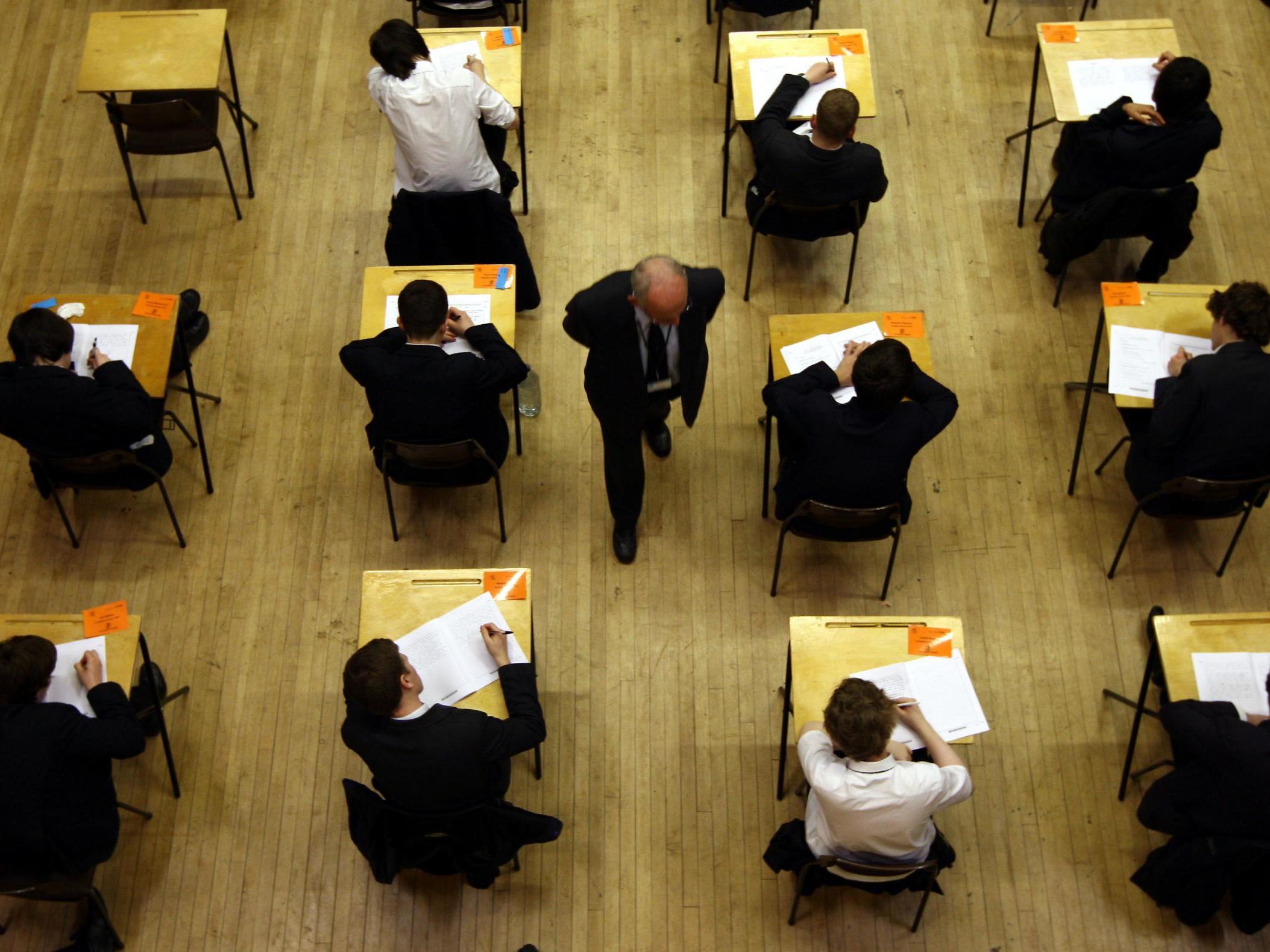Your support helps us to tell the story
From reproductive rights to climate change to Big Tech, The Independent is on the ground when the story is developing. Whether it's investigating the financials of Elon Musk's pro-Trump PAC or producing our latest documentary, 'The A Word', which shines a light on the American women fighting for reproductive rights, we know how important it is to parse out the facts from the messaging.
At such a critical moment in US history, we need reporters on the ground. Your donation allows us to keep sending journalists to speak to both sides of the story.
The Independent is trusted by Americans across the entire political spectrum. And unlike many other quality news outlets, we choose not to lock Americans out of our reporting and analysis with paywalls. We believe quality journalism should be available to everyone, paid for by those who can afford it.
Your support makes all the difference.There could be a record number of students trying to secure a place a university through clearing, the head of the admissions service has predicted.
Although A-Level results are less than a week away, almost three-quarters of Britain’s leading universities have vacancies for undergraduate courses on the Universities and Colleges Admissions Service (UCAS) website.
Clare Marchant, the chief executive of UCAS, said she thought as many as 80,000 applicants could find a place at university through clearing, up from 73,000 last year.
Despite fears coronavirus could lead to many students cancelling or postponing starting university courses, Ms Marchant said the “fragile” situation could actually lead to more British students starting tertiary education.
“I think we will end up with significant numbers through clearing,” Ms Marchant said. “I think it’s going to be probably the busiest yet.”
Many universities will be looking to fill spots normally taken by overseas students and there are fewer 18-year-olds in the population than usual, meaning those who want to start studying in September have a “stronger hand” than usual, she added.
According to analysis by the PA news agency, more than 4,500 courses at elite Russell Group universities still have vacant spaces available through clearing.
And while Covid-19 might lead some students to put off starting at university, others will have had gap year plans for travel or work ruined by the lockdown, leading to a clearing boom.
“I am expecting there to be a number of those,” Ms Marchant said, of those who had planned to take a year out. “[They’re saying] ‘I’m not going to defer, or I’m going to come in for the very first time’.”
Several leading universities, including Warwick, Bristol and Sheffield, have already indicated they have heard from applicants due to begin studying next year asking to begin their courses in September instead.
Nevertheless, the situation for prospective students remained highly uncertain, Ms Marchant conceded, and the possibility of local lockdowns could influence where people choose to study.
Another potential fly in the ointment is controversy over A-Level results. Because Year 13 students were unable to take their exams during the lockdown, their grades were assigned by their teachers and will then be moderated by exam boards.
A similar process in Scotland caused concern when it became clear some students who had previously attained excellent grades had theirs moderated significantly down by the algorithm because the school they attend were from poorer neighbourhoods and normally did not score highly in exams.
Labour has already warned a comparable procedure in England would punish pupils from more deprived areas.
Despite all this, Nick Hillman, director of the Higher Education Policy Institute thinktank, said it was a good time to start university.
“A big second wave would obviously be a disaster for universities and students but I am clear in my own mind that – if I were 18 this year – I would be planning on going this year, in part because the alternatives are so ropey.
“The biggest challenge for universities, therefore, may not be recruitment but retention after students have arrived on campus.”

Join our commenting forum
Join thought-provoking conversations, follow other Independent readers and see their replies
Comments